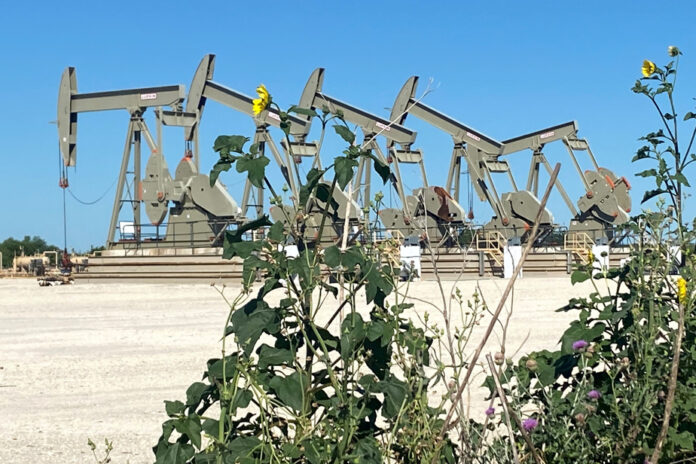(New York) Oil prices unsuccessfully attempted a technical rebound on Thursday after a nightmarish start to the week as economic and banking sector uncertainty weighed too heavily.
The price of a barrel of Brent North Sea crude for July delivery edged up just 0.23%, to close at $72.50.
The barrel of American West Texas Intermediate (WTI), with maturity in June, crumbled by 0.05%, to 68.56 dollars.
The session was marked by a sharp gap shortly after the open, which sent WTI down to $63.64, its lowest level in 17 months. “It was a ‘bug,'” John Kilduff of Again Capital said, with the price recovering immediately after.
This sharp gap, added to the declines of the last few days, caused a hunt for bargains, which allowed prices to recover, explained the analyst.
The reversal was also encouraged by the prospect of a possible new intervention by the Organization of the Petroleum Exporting Countries (OPEC) and its allies of the OPEC agreement.
“They’re starting to make a bit of noise about a continuation of production cuts,” noted John Kilduff.
The cartel already announced a cut in volumes of two million barrels per day in October, before eight members of the alliance decided in early April to further cut their daily production by a further 1.16 million barrels.
According to Russian news agency TASS, OPEC members have decided that the June 4 ministerial meeting will take place face-to-face, rather than by videoconference.
“It shows that they are vigilant”, according to John Kilduff. “The problem is that their credibility isn’t fantastic when it comes to production cuts. »
Although prices firmed up somewhat on Thursday, “if all of a sudden the banking crisis spreads, we could still see some volatility” in the oil market, said Eli Rubin, of EBW Analytics Group.
After gaining almost 2% in the session, the WTI quickly ran out of steam, to close around equilibrium.
The American banking sector found itself under pressure again on Thursday, with the regional establishment PacWest particularly targeted.
“It doesn’t look like the regional banking crisis is going to end tomorrow,” added the analyst. “And the longer these fears (about the strength of the US financial sector) continue, the more it can weigh on oil prices,” despite “the strength of market fundamentals.”















